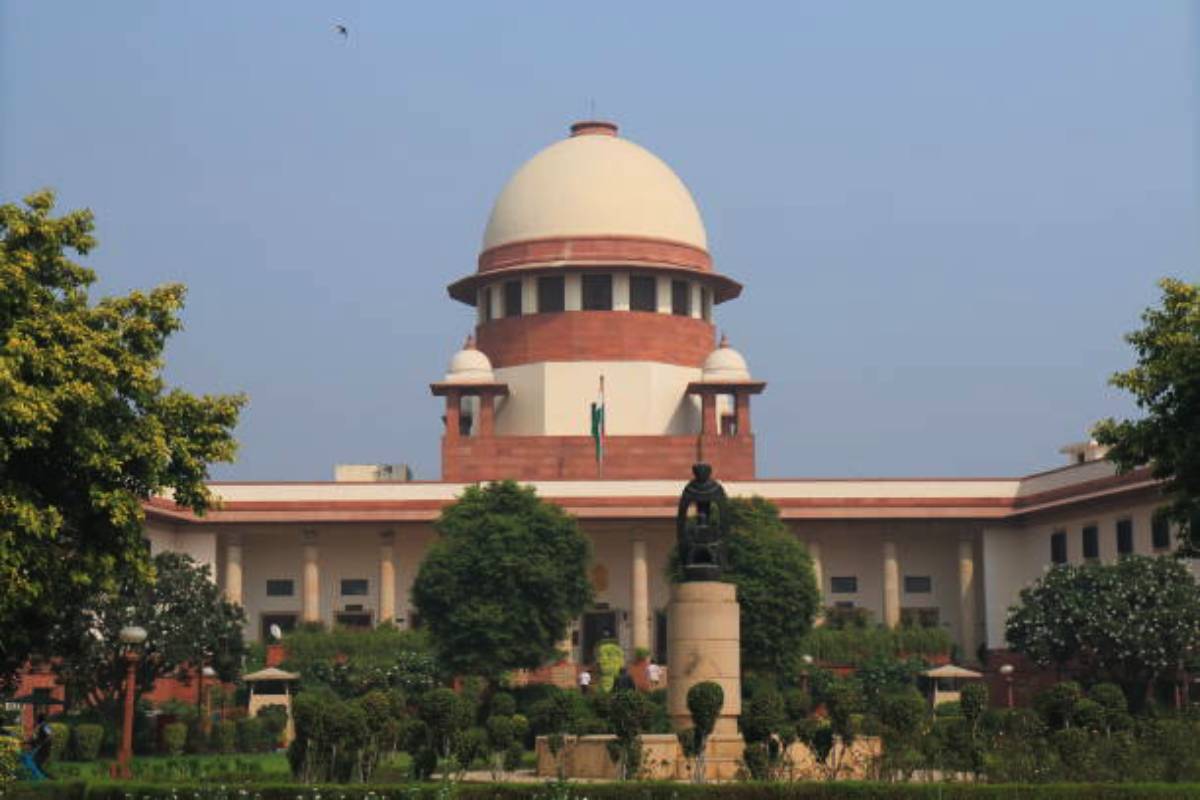India’s Got Latent: SC issues notice on YouTuber Ashish Chanchlani’s plea against FIRs
SC issues notice on YouTuber Ashish Chanchlani’s plea to quash or transfer FIR in India’s Got Latent case; tagged with Ranveer Allahabadia’s petition.
An indication of this was available, when Chief Justice D Y Chandrachud on Wednesday said that they are going to deliver two constitution bench judgments.

File Photo: Supreme Court of India
The Supreme Court constitution bench is likely to pronounce on Thursday (May 11) two judgments on Shiv Sena rooted Maharashtra political crisis and dispute between Delhi government and the Centre relating to control over the transfer and posting of senior bureaucrats posted in Delhi government.
An indication of this was available, when Chief Justice D Y Chandrachud on Wednesday said that they are going to deliver two constitution bench judgments tomorrow.
Advertisement
CJI Chandrachud said this in the course of the hearing by a five-judge co0nstitution bench on a batch of petitions seeking legal recognition of same sex marriage.
Advertisement
As senior advocate Abhishek Manu Singhvi told the bench that he would require an hour to complete his rejoinder arguments tomorrow, CJI Chandrachud said that tomorrow is “crowded morning” as “Tomorrow we have two constitution bench judgments to deliver” and more than 240 mentioning. Singhvi is advancing rejoinder arguments on behalf of a petitioner seeking recognition to same sex marriage.
The two judgments were waiting to be pronounced as Justice M R Shah who was part of the five-judge constitution bench in both the matters is retiring on May 15, 2023.
Both the matters were heard by the five-judge constitution bench comprising Chief Justice D.Y. Chandrachud, Justice M.R. Shah, Justice Krishna Murari, Justice Hima Kohli and Justice Pamidighantam Sri Narasimha.
In Shiv Sena matter, the top court constitution bench had reserved verdict on March 16, 2023, on a batch of petitions by the rival factions of Shiv Sena led by former Chief Minister Uddhav Thackeray and the incumbent Chief Minister Eknath Shinde on the issues arising from Shiv Sena rooted Maharashtra political crisis.
The issues that will be decided include those arising from the role of the Governor Bhagat Singh Koshare in dealing with the entire issues, powers of the Speaker vis-à-vis anti-defection law, and whether 2016 constitution bench judgment in Arunachal Pradesh political crisis that had said that if Speaker is faced with a notice of his removal then he cannot exercise his powers under anti-defection law (Tenth schedule of the constitution), needs to be reconsidered.
The other constitution bench judgment relates to a dispute between Delhi government and the Centre relating to the transfer and posting of senior level bureaucrats serving in Delhi government.
In the Delhi vs Centre matter, the top court had reserved judgment on January 18 upon the conclusion of arguments that were spread over five days as Centre repeatedly urged the court to refer the matter to a larger seven-judge bench.
As the Solicitor General Tushar Mehta who had appeared for the Centre urged the court urged the court to refer the matter to an appropriate larger bench, senior advocate Abhishek Manu Singhvi who had appeared for Delhi government opposed it terming the Centre’s application as an ‘ambush’ argument to derail days of arguments.
The Delhi government had told the top court that a government cannot function if it does not have control over its officials (services) including their transfer and postings. Meeting the argument, the Centre had said that Delhi was a Union Territory – an extension of the Centre and thus does not have a personality of a State or independent of the Centre.
In the Shiv Sena matter, the constitution bench had questioned the role of the Governor in the handling of the entire crisis eventually precipitating the split in the Shiv Sena by questionably calling Shinde to take oath and before that asking Uddhav Thackery to face the floor test. The court said that the way the Governor had acted was a sad spectacle for democracy.
During the hearing, which lasted for nine days, the court had observed that the governor should not enter into any area which precipitates the fall of a government and called the Maharashtra political crisis a serious issue for democracy.
Udhav Thackeray camp had told the court that in parliamentary democracy and the scheme of the constitution, it is the political party that has the primacy and the Governor cannot call for a trust vote based on a faction’s claim as calling for a trust vote is based on alliances.
On the other hand, Solicitor General Mehta and others had argued that the Governor could not be mute spectator of political developments resulting in the Udhay Thackeray government being reduced to a minority.
Advertisement